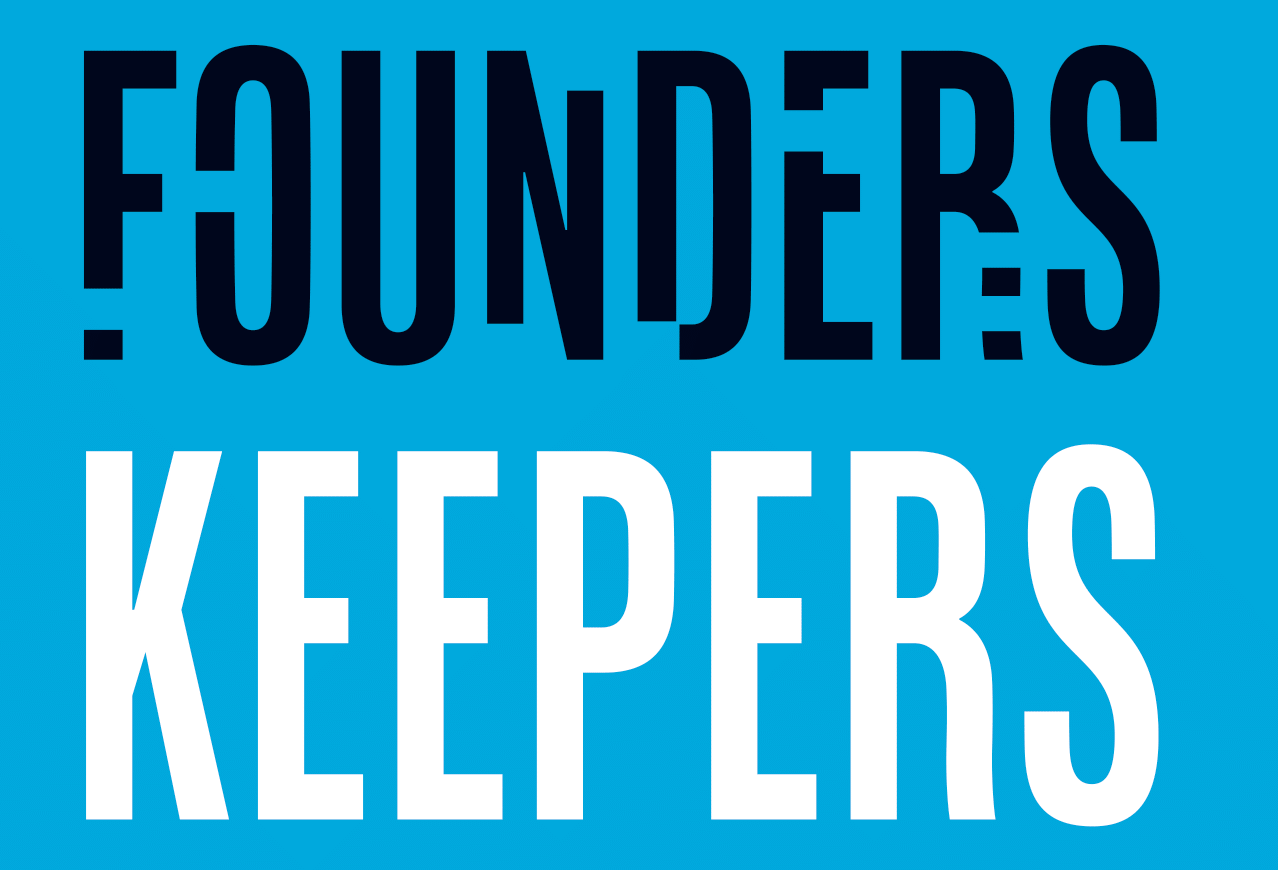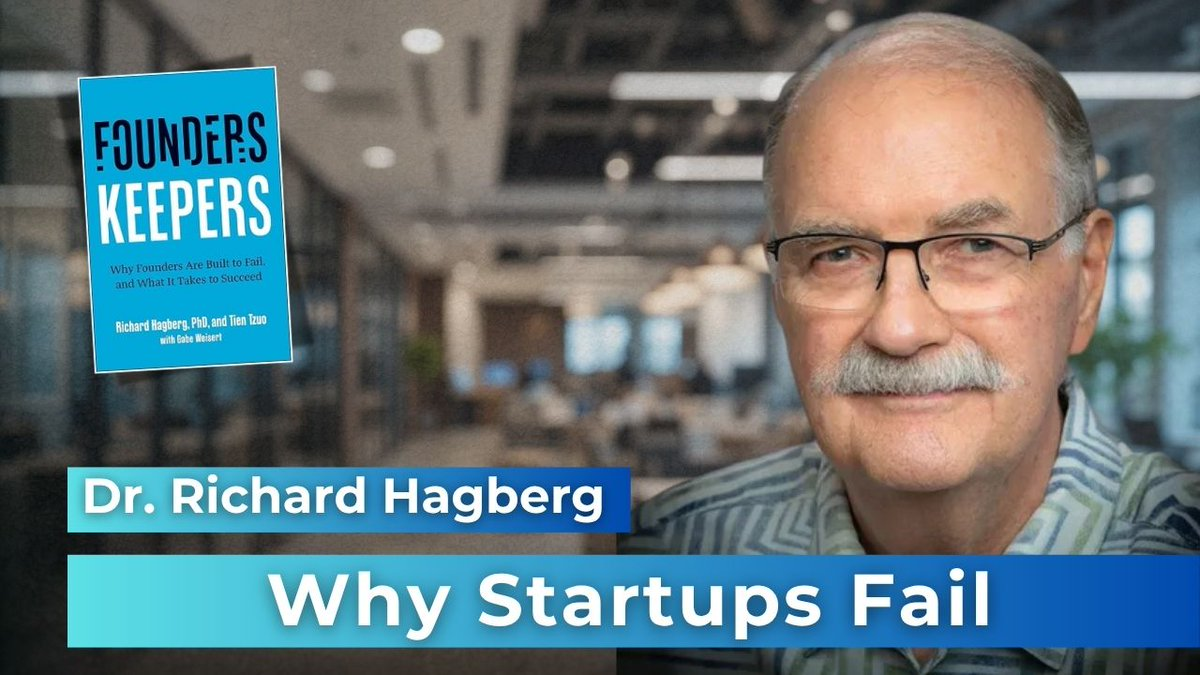Article
Transitioning Your Leadership from Seed to Scale: The Founder’s Growth Playbook
December 5, 2024

There’s a reason why founders are revered as the beating heart of their startups. Your creativity, vision, and grit are what bring the impossible to life. But let’s be real—your quirks and blind spots? Those can just as easily become the cracks that bring everything crashing down.
As someone who’s studied, coached, and analyzed hundreds of founders, I’ve noticed a pattern. Certain personality traits that serve you beautifully in one stage of growth can utterly sabotage you in the next. It’s like you’re building the rocket while flying it, and some of the bolts (your tendencies) keep loosening along the way.
So, let’s do some introspection. How do your strengths and weaknesses as a founder shape the trajectory of your startup through the seed stage, the traction stage, and the fast-growth stage? And more importantly—what can you do about it? Let’s dive in.
Seed Stage: The Wild West of Startups Where the Chaos Begins The seed stage is where you, the founder, shine. It’s about taking your big, bold idea and turning it into something tangible—a minimum viable product (MVP). You’re fueled by creativity, adaptability, and risk-taking, which makes you the perfect pioneer for this uncharted territory.
But here’s the catch: the same traits that make you a visionary can also make you a bit of a loose cannon.
What You Need to Do:
Provocative Question: How often do you really listen to customers versus listening to your own brilliant ideas? Be honest.
Traction Stage: Scaling the Engine Now the Fun Begins You’ve found some traction. Customers like what you’re selling (yay!), and now it’s time to scale. This stage is all about systems, processes, and data—words that can strike terror into the hearts of visionary founders.
What You Need to Do:
Fast Growth Stage: Scaling the Organization Welcome to the Big Leagues This is where your startup either becomes a rocket ship or implodes from its own momentum. Fast growth is exhilarating, but it’s also the stage where founders most often become the biggest problem. Why? Because the skills that got you here won’t get you there.
What You Need to Do:
Where Founders Go Off the Rails:
So, What’s the Takeaway? Here’s the hard truth: you are your startup’s greatest asset, but you’re also its most dangerous liability. Your strengths as a visionary, risk-taker, and pioneer are what make your startup possible. But if you’re not careful, your weaknesses—disorganization, micromanagement, avoidance of conflict—will eventually hold it back.
Every stage of growth demands a different version of you. The scrappy hustler who dominated the seed stage might become a bottleneck in fast growth. The big-picture thinker who thrived in traction might struggle with the discipline of systems. Your ability to adapt, delegate, and evolve as a leader will determine whether your startup scales—or stalls.
Let’s Debate:
Drop your thoughts in the comments—I can’t wait to hear your stories, arguments, and maybe a few war stories from the trenches.
And remember, growth isn’t just about your startup. It’s about you. Are you ready to evolve?
As someone who’s studied, coached, and analyzed hundreds of founders, I’ve noticed a pattern. Certain personality traits that serve you beautifully in one stage of growth can utterly sabotage you in the next. It’s like you’re building the rocket while flying it, and some of the bolts (your tendencies) keep loosening along the way.
So, let’s do some introspection. How do your strengths and weaknesses as a founder shape the trajectory of your startup through the seed stage, the traction stage, and the fast-growth stage? And more importantly—what can you do about it? Let’s dive in.
Seed Stage: The Wild West of Startups Where the Chaos Begins The seed stage is where you, the founder, shine. It’s about taking your big, bold idea and turning it into something tangible—a minimum viable product (MVP). You’re fueled by creativity, adaptability, and risk-taking, which makes you the perfect pioneer for this uncharted territory.
But here’s the catch: the same traits that make you a visionary can also make you a bit of a loose cannon.
What You Need to Do:
- Talk to Customers (No, Really): Are you intellectually curious? Great. Use it to dig into what your customers actually want—not what you think they want. The startup graveyard is littered with the corpses of products that nobody needed.
- Iterate Quickly: Your adaptability is a gift—lean into it. Test your assumptions, pivot when necessary, and don’t let perfectionism slow you down. (Yes, we know you want your MVP to “wow,” but nobody expects a Picasso in Version 1.0.)
- Build a Nimble Team:
Your charm and vision can attract talented people who want to join your mission. But be careful not to micromanage these early hires. Generalists thrive in this stage; just give them the space to do their thing.
- Overbuilding: Are you getting lost in complexity? Stop adding features nobody asked for and launch the dang thing.
- Ignoring Feedback: If your independent streak is whispering, “I know better,” pause. Arrogance has no place in customer discovery.
- Misallocating Resources: Sure, a sleek office might feel like success, but if you’re blowing cash on branding while your MVP is still duct-taped together, you’re doing it wrong.
Provocative Question: How often do you really listen to customers versus listening to your own brilliant ideas? Be honest.
Traction Stage: Scaling the Engine Now the Fun Begins You’ve found some traction. Customers like what you’re selling (yay!), and now it’s time to scale. This stage is all about systems, processes, and data—words that can strike terror into the hearts of visionary founders.
What You Need to Do:
- Focus on Metrics: Are you tracking retention, revenue, and other KPIs? If not, start yesterday. Your big-picture thinking is great, but now it’s time to get granular.
- Expand the Team: This is when you need specialists. Let’s face it, you’re not great at everything (and that’s okay). Hire people who are better than you at execution and let them shine.
- Refine the Product: The MVP is evolving. Listen to your customers (yes, again) and improve it. Cut what isn’t working, even if you love it.
- Build the Brand:
Use your charisma and social savvy to tell the world why your product matters. Just make sure you’re delivering on those promises.
- Micromanaging: If you’re charming but commanding, here’s a truth bomb: you might be the bottleneck. Delegation isn’t a dirty word; it’s your ticket to scalability.
- Premature Scaling: Are you hiring like crazy or expanding markets too soon? Slow down, tiger. Scaling chaos is a real thing.
- Avoiding Accountability: Struggling to hold people accountable? Your team sees it, and they’re frustrated. Don’t let this fester.
- Poor Market Positioning:
Visionaries sometimes forget that clarity sells. If customers don’t “get” your value proposition, they won’t buy.
Fast Growth Stage: Scaling the Organization Welcome to the Big Leagues This is where your startup either becomes a rocket ship or implodes from its own momentum. Fast growth is exhilarating, but it’s also the stage where founders most often become the biggest problem. Why? Because the skills that got you here won’t get you there.
What You Need to Do:
- Operationalize Growth: Your charming, scrappy, “figure-it-out” culture won’t scale without systems. Invest in hiring processes, customer support frameworks, and financial controls.
- Invest in Leadership: You can’t do it all, and you shouldn’t try. Bring in seasoned executives who know how to handle complexity. Empower them, don’t overshadow them.
- Evolve the Culture: Your early team loved the chaos; your new team needs structure. Create a culture that balances speed with sustainability.
- Think Strategically: Stop fighting fires and start thinking long-term. What partnerships, markets, or innovations will keep you competitive?
Where Founders Go Off the Rails:
- Founder’s Syndrome: Let’s be blunt—if you’re struggling to let go of control, you’re the problem. Stop second-guessing your leadership team.
- Leadership Gaps: Are you hiring strong managers? If not, your teams will flounder. Weak leadership is a recipe for dysfunction.
- Operational Chaos: Scaling without systems is like building a skyscraper on sand. Get your house in order.
- Burnout and Retention Issues: If your team is burning out because you’re pushing too hard, you’re running a sprint when you should be running a marathon.
- Strategic Drift:
Are you chasing shiny objects instead of staying focused? Your team needs clarity, not a thousand half-baked ideas.
So, What’s the Takeaway? Here’s the hard truth: you are your startup’s greatest asset, but you’re also its most dangerous liability. Your strengths as a visionary, risk-taker, and pioneer are what make your startup possible. But if you’re not careful, your weaknesses—disorganization, micromanagement, avoidance of conflict—will eventually hold it back.
Every stage of growth demands a different version of you. The scrappy hustler who dominated the seed stage might become a bottleneck in fast growth. The big-picture thinker who thrived in traction might struggle with the discipline of systems. Your ability to adapt, delegate, and evolve as a leader will determine whether your startup scales—or stalls.
Let’s Debate:
- What’s the one personality trait you think holds most founders back?
- What’s harder: building a great product or building a great team?
- Are founders born or made?
Drop your thoughts in the comments—I can’t wait to hear your stories, arguments, and maybe a few war stories from the trenches.
And remember, growth isn’t just about your startup. It’s about you. Are you ready to evolve?
share this
Related Articles
Related Articles

The Leadership Tightrope If you lead long enough, you start to realize something uncomfortable: everything that makes you effective also threatens to undo you. Your drive becomes impatience. Your confidence becomes stubbornness. Your empathy turns into guilt. The longer you lead, the more you realize that the job isn’t about choosing one trait over another — it’s about learning to carry both. That’s what maturity looks like in leadership. It’s not balance. It’s tension well managed. The False Comfort of Either/Or Most leaders crave clarity. We want rules. Playbooks. Certainty. Should I be tough or kind? Decisive or collaborative? Visionary or practical? The insecure part of the brain hates contradiction. It wants the “right answer.” But leadership lives in the messy middle — the place where both truths exist, and neither feels comfortable. The best leaders aren’t either/or thinkers. They’re both/and navigators. A Story from the Field I once coached a CEO who told me, “I’m torn between holding people accountable and being empathetic.” I said, “Why do you think those are opposites?” He paused, then laughed. “Because it’s easier that way.” Exactly. It’s easier to pick a lane than to learn how to drive in two at once. He eventually realized the real question wasn’t which side to choose, but when and how to lean into each. He became known as “the fairest tough boss in the building.” That’s the magic of integration — toughness with tenderness, vision with realism, clarity with compassion. Why Paradox Feels So Hard Contradictions feel like hypocrisy when you haven’t made peace with your own complexity. If you believe you have to be one consistent version of yourself — confident, decisive, inspiring — then every moment of doubt feels like fraud. But the truth is, great leaders are contradictory because humans are contradictory. You can be grounded and ambitious, humble and proud, certain and still learning. The work is not to eliminate the tension — it’s to get comfortable feeling it. The Psychology Behind It Our brains love binaries because they make the world simple. But complexity — holding opposites — is the mark of advanced thinking. Psychologists call this integrative complexity — the ability to see multiple perspectives and blend them into a coherent approach. It’s not compromise; it’s synthesis. It’s saying, “Both are true, and I can move between them without losing my integrity.” That’s where wisdom lives — in the movement, not the answer. Funny But True A client once told me, “I feel like half monk, half gladiator.” I said, “Congratulations. That means you’re leading.” Because that’s what the job demands: peace and fight, compassion and steel. If you can’t hold both, you end up overusing one until it breaks you. The Cost of One-Dimensional Leadership We’ve all worked for the “results-only” leader — brilliant, efficient, and emotionally tone-deaf. And the “people-first” leader — kind, loyal, and allergic to accountability. Both are exhausting. Both create lopsided cultures. When leaders pick a single identity — visionary, disciplinarian, nurturer, driver — they lose range. They become caricatures of their strengths. True greatness comes from emotional range, not purity. The Paradox Mindset Here’s how integrative leaders think differently: They value principles over preferences. They can be decisive without being defensive. They know empathy isn’t weakness and toughness isn’t cruelty. They trade perfection for adaptability. They’re the ones who can zoom in and out — from the numbers to the people, from the details to the meaning — without losing coherence. They’re not consistent in behavior. They’re consistent in values. That’s the difference. How to Practice Both/And Thinking Spot your overused strength. The strength that’s hurting you most is the one you lean on too much. If you’re decisive, try listening longer. If you’re compassionate, try being direct faster. Ask, “What’s the opposite quality trying to teach me?” Impatience teaches urgency; patience teaches perspective. You need both. Invite your opposite. Bring someone onto your team who balances your extremes — not a mirror, a counterweight. Hold paradox out loud. Tell your team, “This decision has tension in it — and that’s okay.” Modeling that normalizes complexity for everyone else. A Moment of Self-Honesty I’ve spent decades watching leaders chase “clarity” like it’s peace. But peace doesn’t come from eliminating tension. It comes from trusting yourself inside it. Once you accept that leadership will always feel contradictory, you stop fighting it — and start flowing with it. You don’t need to be the calmest, toughest, or most visionary person in the room. You just need to be the one who can stay whole while the world pulls you in opposite directions. Your Challenge This Week When you catch yourself thinking, “Should I be X or Y?” — stop. Ask instead, “How can I be both?” Then practice it in one small moment. Be kind and firm. Bold and humble. Fast and thoughtful. That’s where growth hides — in the discomfort between two truths. Final Word The best leaders aren’t balanced. They’re integrated. They’ve stopped trying to erase their contradictions and started using them as fuel. They’ve learned that leadership isn’t about certainty. It’s about capacity — the capacity to hold complexity without losing your center. That’s not chaos. That’s mastery
STAY UP TO DATE
GET PATH'S LATEST
Receive bi-weekly updates from the church, and get a heads up on upcoming events.
Contact Us










